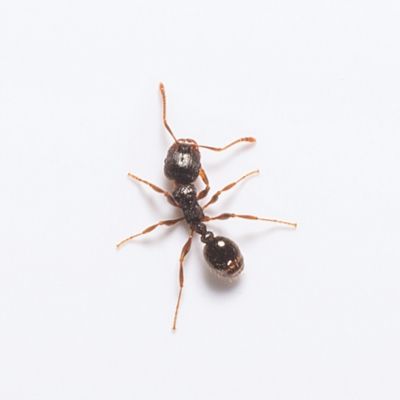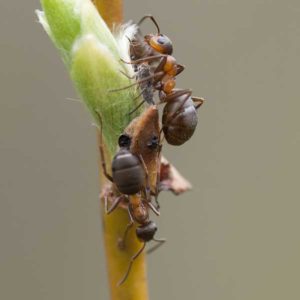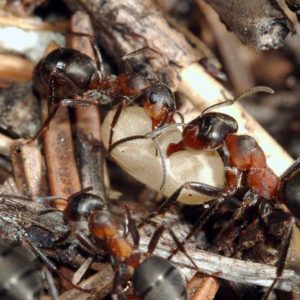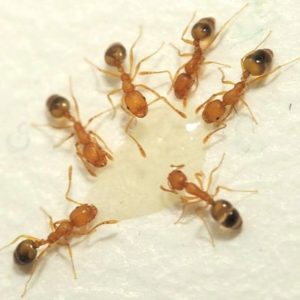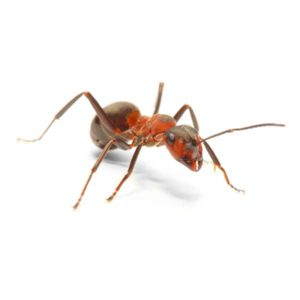Pavement Ants in the Pacific Northwest
Pavement ants get their name from their habit of building nests alongside sidewalks, driveways, and foundations. In the Pacific Northwest, these ants feed on a wide variety of items – including meat, dead insects, bread, seeds, and sweets. Pavement ants also tend to aphids and mealybugs, which are tiny insects that produce a very sweet substance called honeydew. During the spring, mature ants in outdoor colonies may begin to swarm. However, pavement ants may swarm year-round if their nest is located indoors. Swarming pavement ants can be unsightly in commercial buildings and homes, especially if they are frequently raiding your kitchen.
Pavement Ant Habitat
Pavement ants tend to build their nests near sidewalks and slabs of concrete, which makes urban areas the perfect location for these pests. As they construct their home, pavement ants will displace any soil to create a noticeable mound near their nesting site. If these ants make it indoors, they typically stay near a food source and may build their nest inside wall voids, insulation, or flooring. Pavement ants are also more active at night, moving in slow and deliberate trails that can be seen going to and from their food source.
Pavement Ant Behaviors, Threats, or Dangers
Though pavement ants are capable of biting and stinging, they rarely bite humans. Instead, these ants are considered a nuisance pest because they leave behind unattractive piles of debris and may infiltrate kitchens in search of food. Pavement ant colonies are also very large, which means they can infest homes in large numbers. If a nest isn’t treated quickly, pavement ant populations can continue to grow and spread throughout your home or commercial building – even leading to new colonies. If you notice the signs of a pavement ant infestation, call a professional ant exterminator to remove these tricky pests.

